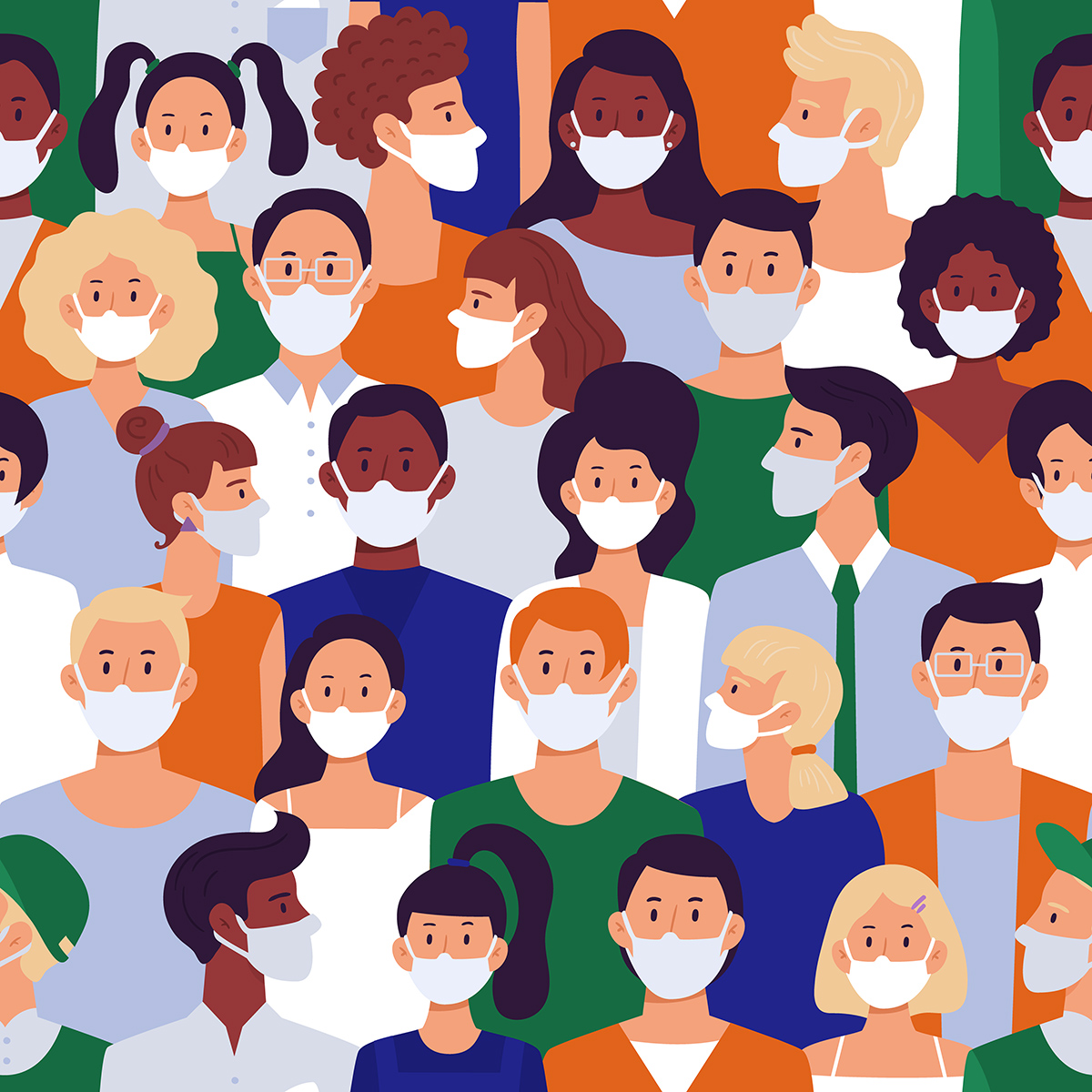
By Cynthia Hubert
The coronavirus pandemic has upended life for most people in the Sacramento region, but communities of color are feeling the effects most severely, new research shows.
A comprehensive survey by Valley Vision and Sacramento State’s Institute for Social Research has found deep disparities in the impacts of the highly contagious virus. Black and Hispanic respondents are feeling the effects of the pandemic most dramatically, the research found.
The report is the sixth public opinion survey in recent years in which Valley Vision has collaborated with Sac State.
“The poll allows us to gather unique data about issues that are most important to residents of the region,” said Valley Vision’s chief executive officer, Evan Schmidt. “Our goal is that elected officials and other leaders will use the information to spur conversations and craft policies and programs.”
Capital Public Radio, which is licensed to Sac State, is using the survey results to produce a series of stories about the coronavirus and its impact on the area.
In May, researchers conducted a poll of residents in Sacramento, Yolo, Yuba, Sutter, El Dorado, Placer, San Joaquin and Solano counties about how the virus and shelter-in-place orders were affecting their lives. The survey is based on a panel of 2,000 people, 964 of whom responded to the questions. The respondents represent a scientifically valid microcosm of the overall region, the authors said.
The researchers found that the coronavirus is taking a toll on the mental, physical and emotional health of people in the region, and disrupting their daily routines and financial security. They also discovered that people were “experiencing the pandemic differently” based on their economic situations, jobs and ethnic backgrounds, among other factors.
The vast majority of those surveyed expressed concern about the pandemic, with 87% saying they were worried about a family member contracting the virus that causes the disease known as COVID-19. Eighty-one percent said they were concerned about getting the virus themselves, and 75% said they were worried about whether they would be able to visit with family and friends during the pandemic. Nearly half of respondents said they had lost income because of fallout from the virus, which since March has shuttered many businesses and forced most people to stay at home.
But the data revealed significant disparities in the intensity of concern across different populations, with Black and Hispanic respondents saying they are feeling the impacts more severely. Members of these groups consistently had the highest levels of concern about issues related to the virus, and also reported more worries about depression, feelings of hopelessness, substance abuse and obtaining medical services and supplies.
“We’re all in this together but we are experiencing it differently,” said Shannon Williams, director of the Institute for Social Research. Many “essential” and front-line workers are people of color and workers with lower incomes who cannot perform their jobs virtually. These individuals have higher risks of virus exposure, she pointed out, and many are denied sick pay and other benefits.
“Often in this country, people of color don’t have the same opportunities and resources as others,” Williams said. “This data shows how that is playing out with regard to the pandemic.”
Among the survey’s key findings:
- Nearly half of respondents said they had lost income as a result of the pandemic, and a third said they are struggling to afford basic needs including rent or mortgage and other bills. More than half reported that they are concerned about their job security.
- Respondents with higher incomes were more likely to be working remotely.
- The vast majority of respondents reported that they are taking precautions to stave off the virus, including maintaining a social distance of six feet from others, washing their hands more often and wearing face coverings in public.
- Many respondents were critical of how elected leaders have responded to the pandemic.
Most of those who answered the survey believe the region should remain vigilant in promoting measures designed to stem spread of the virus, with a smaller percentage believing Sacramento and surrounding areas should strive “to get back to normal.” Republicans were more likely than Democrats or independents to believe that the region should return to normal operations.
Open-ended questions about how people were feeling in the midst of the pandemic elicited some poignant responses.
“I am isolated and depressed,” one person said. “Scared of going out and stressed really bad when I do.”
“I don’t qualify for food stamps and my kids are home all day and need at least three meals,” said another.
“Coronavirus is going to be the reason I’m going to be homeless for the first time in my life,” said a third, who added that “I would rather be dead than homeless.”
Despite the chaos that the pandemic has wrought, people in the capital region have risen to the moment in many ways, the report notes. For example, manufacturers quickly pivoted to produce personal protective equipment for health care professionals; food banks and other community organizations mobilized to feed residents in crisis; government agencies created loan programs to support small businesses; and teachers, school systems, and students adapted to online learning.
“This rapid and dramatic transformation created stories of resilience as well as upheaval and suffering,” the report says. “To weather this storm, we will need sustained focus and action.”
The latest survey, and at least two more that will follow, will help leaders navigate the challenges ahead, the researchers said, and “reimagine a more equitable, sustainable and just future.”
